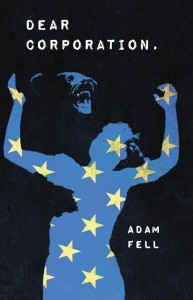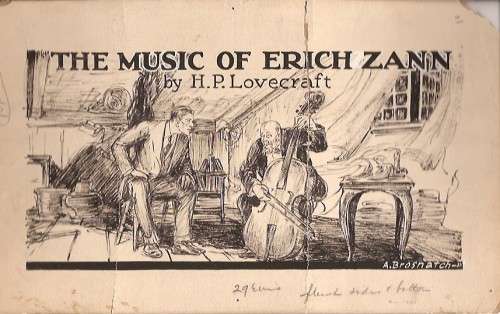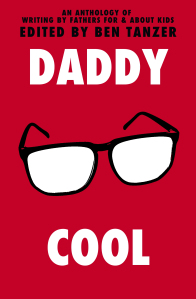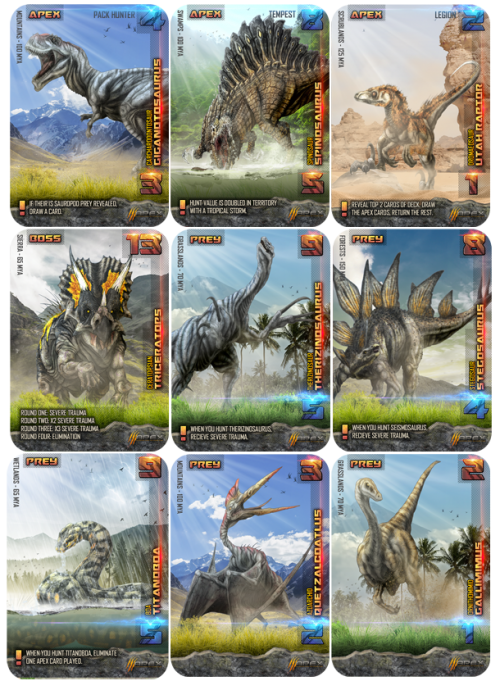Dylan Little, Manager at the Providence Community Library, is clearly lying to us.
Dylan Little, Manager at the Providence Community Library, is clearly lying to us.
“…………Dream at night always of
your loved ones in danger. Wake tangled in
the gauze of your sheets. Draw yourself a
hot bath. Unhood the windows. It’s
becoming harder and harder to tell whether
the motion detector has been triggered or
it’s already morning. Try to practice your
breathing. Let the day open up to you with
the hiss of automated doors. Find something
in the near distance to look forward to. Hold
on. Even if the boot is crushing your fingers.”—from Adam Fell’s new “DEAR CORPORATION“

I met Adam Fell when I read in Madison, WI at the wonderful Monsters of Poetry which Adams helps curate. At dinner after the reading Adam talked about the huge demonstrations at the Capitol that he’d been a part of in early 2011. And if memory serves me Adam then talked about he then began writing the poems that now constitute DEAR CORPORATION (released last month, H_NGM_N Books). Poems, thus, that were born out of the feelings of anger, impotence, vulnerability, etc, that ones feels when at the mercy of something much bigger and colder and pure-predator.
“………………Distrust the
unconflicted, the unaccountable, the
unworried, the unwounded. Distrust your
own impulse to leave your love in the ruins.
Your pain is not the only pain, not the worst
pain. Your guilt is not the only guilt, not the
worst guilt”—from DEAR CORPORATION

Many writers are excited to sit on a train, shit in a moving closet, and eat microwavable food. I can understand the appeal of having quiet-time for consecutive days, looking through a window at a flashing landscape. We want to escape our daily physical space so badly, but also remain in a chair, so the Amtrak residency seems ideal for many. Here are eight other writer residencies if you’re not down with Amtrak but are looking for something different:
Inspired by the riveting journeys already undertaken by Adam R., Melissa, and Brooks, I thought I’d take you on a tour of my own humble shower …
OK so obviously I’ve got a lot of hygiene products; I’ll admit I’m a little obsessive. There’s a special story behind each and every one of them (à la Daniel Spoerri’s classic conceptual text An Anecdoted Topography of Chance), but I don’t know if you want to hear all of them. So I’ll stick to just the highlights …
“Poets are the physicians of the soul.”—Irving Layton, Canadian Nobel nominee for literature.
“She wouldn’t react that way to rape—you bet your life she wouldn’t. Along with the rest of her sex she’d lie back and enjoy it”—Irving Layton in private correspondence. Wild Gooseberries: The Selected Letters of Irving Layton (Toronto: Macmillan, 1989), 53.
***

Canadian Lit likes to think it’s known for being boring, or multicultural, or for surviving in the wilderness. It is hardly known at all, besides by a certain charming Scandinavian institute for Canadian Studies, and those non-Canucks who do know it exists prefer not to think about it. We have heard dull battle cries from other bookish people: “Can Lit isn’t literature”; “Or you could read an actual book” & “Don’t waste your time with that shit”. The Stephen Leacocks, Michael Ondaatjes, Margaret Atwoods, Alice Munros, Anne Carsons, Robertston Davies and Irving Laytons be damned; there’s nothing particularly Canadian about them, they just live north of the 49th. I don’t care to address those suckers of canonization’s long, evil phallus. “Tell us what to read!” they say. “Tell us what set of pseudo-conflicting opinions to harbor,” they murmur through their facile, troubled dreams of greatness. This letter is also not to the children of Canlit, those ‘iconoclasts’ who treat famous poets like demigods, and who worship in a side-chapel of the same institution of thinly-veiled brain-death. Keep your precious feelings, everybody, but leave discussions of taste to snobs who read.
(WATCH THIS FULLSCREEN THX)
bio: oscar bruno d’artois used to have a job selling meatpies. he lives in brooklyn, new york. follow him on twitter @brunoartois
I.
On this particular evening, the musician allows his fellow lodger in the house on Rue d’Auseil to listen to his feverish viol music. “It would be useless to describe the playing …. He was trying to make a noise; to ward something off or drown something out—what, I could not imagine,” writes H.P. Lovecraft in “The Music of Erich Zann.” The listener, a metaphysics student at an unnamed university, is an interloper, a voyeur who, on hearing Erich Zann fill his garret room with this crazed playing, hopes to peak into the source of the music’s beauty, to penetrate some “far cosmos of the imagination.” On this particular evening, the cosmos stabs back. Lovecraft describes Zann’s playing, which grows “fantastic, delirious, and hysterical …. [l]ouder and louder, wilder and wilder,” until other-worldly chaos and pandemonium explode into the house on Rue d’Auseil and the listener flees. It is a bit much.

Howard Philips Lovecraft wrote “The Music of Erich Zann” in 1917. Over the next 20 years, he would go on to write his best known tales of horror and wonder, those involving Cthulhu, Nyarlathotep, and Azathoth, his mythos monsters, the Great Old Ones whose names you can’t pronounce. The language in “Erich Zann” is toned-down, tolerable, a pale lilac compared to the rich purple of his later prose, where, as Michel Houellebecq writes, “the adjectives and adverbs pile upon one another to the point of exasperation, and he [Lovecraft] utters exclamations of pure delirium.” Most readers would not consider anything by H.P. Lovecraft well-written in the traditional sense, and yet there is power in his work, a majestic and odd darkness that isn’t matched by much else, an appeal to the unimaginable, our dread of looking into the night sky and hoping, only hoping, we’re alone. Lovecraft’s best sentences are always overwrought. There are excesses of bland fright words—“monstrous”, “horrible”, “grotesque”—mixed with archaic vocabulary, weird words that both in texture and meaning evoke the unusual, “eldritch”, “rugose”, “squamose”; there are extended hallucinations, delirious exclamations, and dream descriptions of nightmare cities, all of which are the antithesis of subtlety. All stylistic restraint has been set aside. Lovecraft eschews any kind of linguistic modesty so he can unleash his unmistakably curious vision of cosmic horror and god-things—this is the source of his style.
“HPL would probably have considered a story a failure, if in writing it he did not have a chance to go overboard once at least,” Houellebecq writes in H.P. Lovecraft: Against the World, Against Life (published in France in 1991; translated into English by Dorna Khazeni and published by Believer Books in 2005). Houellebecq, a French novelist who writes about sex, brand names, technodystopian malaise, and ennui-ridden postmodern consciousness (very French, yes), sees Lovecraft as an American original whose uncompromising weirdness and “stylistic explosion[s]” lead to a unique body of work, the sole goal of which is to fascinate the reader. Houellebecq sets Lovecraft up against more mundane sci-fi and horror writers and against all realism. Lovecraft, Houellebecq argues, whose style is defined by precisely that which it’s easiest to criticize, is interesting not in spite of his grandiose and ridiculous prose, but because of it.
 Daddy Cool: An Anthology of Fathers Writing For and About Kids
Daddy Cool: An Anthology of Fathers Writing For and About Kids
Edited by Ben Tanzer
Artistically Declined Press, 2013
272 pages / $15 Buy from Amazon or Artistically Declined Press
My wife and I are arguing over the amount of books in our house. She says it stresses her out that there are stacks of my books piled into every corner of our duplex.
I ask if it would make her feel better if all of my books were placed on the built-in bookcase in the back of the house.
She reminds me that the back bookcase is already overflowing, some shelves being two books deep, others having stacks of books on top of the books lining the shelves.
We start boxing up some books and DVDs to sell at the McKay in Nashville. I hope this will alleviate her stress, but then she asks what we’ll buy with the store credit I’ll inevitably insist upon in exchange for my prized books.
We can get whatever you want, I tell her.
All I want are books and things for the baby, she tells me. Then she concedes we’ve already developed a pretty great book collection for him.
Finally, something we can agree upon with regards to books. Our son is not even six months old and he has an entire shelf of board books and even more picture books. My wife and I have also prided ourselves on our discerning taste, returning or selling books like Chamelia and Skippyjon Jones with problematic messages. Plus, in our state all newborns are eligible for the Imagination Library, so our son’s book collection grows by at least one book every month.
My wife and I come from impassioned reading stock. My mother bought me tons of books (some of which are now on my son’s aforementioned shelves) and my mother-in-law was a preschool teacher for years. I’m certain ya’ll can see why we want to pass on the joy of reading to our kid.
Daddy Cool is “an anthology of writing by fathers for and about kids.” It’s an idea that is intoxicating to Gen X and Y parents—the hip dad, the cool dad, the dad who shares an interest with his children. In many ways it’s a direct backlash to how their boomer parents treated them.
I can certainly relate. I spend far too much time agonizing over which book to read my son at bedtime (it’s not like he cares). I also am on the hunt for books to share with him that match my same literary tastes, which is why when I learned about Daddy Cool I was very excited, especially because it’s edited by Ben Tanzer, who is a shining star in both the dad writer and indie writer circles.
Tanzer’s introduction to the anthology is heartrending, too. He begins his introduction by discussing how he intended to begin his introduction:
I imagine I would have gone on to say something about the profound impact of reading to your child, telling stories, bonding, and brain development, and how as a writer anything I might say about any of this can only be magnified, or maybe it’s illuminated, though regardless, I would have said something about just how cool this project is, because we are about words and narrative and immersing ourselves in the stories of our lives.
But what Tanzer winds up doing is even more important than stressing our future’s need to love reading. Tanzer writes about his dad, how he read to Tanzer and his brother as children, how he frequented the library, how he made Tanzer the writer that he is today, and how now that he’s gone, Tanzer thinks about his dad, especially when working on projects like the Daddy Cool anthology. It’s this sort of honest pathos that draws me into a book.
Coldfront has a very nice post on Bill Knott, who passed away yesterday.
 “I’ve been learning about and drawing dinosaurs since I was a kid,” explains Herschel Hoffmeyer, creator of the Apex Theropod Deck-Building Game, now on Kickstarter. “I even won a dinosaur art contest at a local library when I was very little. I was made to create these guys and bring them to life.”
“I’ve been learning about and drawing dinosaurs since I was a kid,” explains Herschel Hoffmeyer, creator of the Apex Theropod Deck-Building Game, now on Kickstarter. “I even won a dinosaur art contest at a local library when I was very little. I was made to create these guys and bring them to life.”
Apex Theropod looks like a dinosaur-lover’s nocturnal emission…and Herschel himself might be the biggest dino-enthusiast you’ll ever meet. “I have National Geographic’s The Ultimate Dinopedia and the super-sized book Dinosaurs by David James. I really love what the indie company Lukewarm Media has done with their game Primal Carnage,” he gushes, adding as an afterthought that he hasn’t actually been able to play said game yet.
According to his Kickstarter bio, Herschel is an 8-year Army veteran and Game Art and Design student at the Arts Institute International in Kansas City. Intrigued about how his Army life segued into his current saurian pursuits, I contacted Herschel for an interview. “Apex started as a simple prototype dinosaur-themed game used for an assignment in one of my game design classes at the Arts Institute International of Kansas City,” he explained. “After seeing my game concepts compared to others, I knew I had a knack for game design. Shortly after, I worked on many different prototype games under the same dinosaur theme, game goals, and playable class ideas.”
“The dinosaur theme was definitely the theme from the beginning, just because I thought it would be really fun to play.” As for the mechanics, they were inspired by the Legendary: A Marvel Deck-Building Game, published by Upper Deck Entertainment. Like other deck-building games, Legendary starts each player with a small deck of relatively weak cards (in this case, S.H.I.E.L.D. agents). However, over the course of the game, they can use these cards to “recruit” more powerful, iconic Marvel heroes into their deck, and the winner will be the player who builds the cleverest deck in the shortest time. This evolution from humble beginnings is a potently addictive formula, which explains the explosion of popularity deck-builders have experienced since they were popularized by Donald X. Vaccarino’s Dominion in 2008. Herschel isn’t naive to the economics of the situation: one reason he selected the deck-building format is that, since the bulk of their contents are composed of duplicate cards, deck-builders are relatively inexpensive to manufacture.
 This evolutionary gameplay is also the perfect complement to the theme of becoming the world’s top saurian predator. Herschel explains, “Most of the game’s mechanics are shaped around the theme, and three are really unique to the game. The first is the territory-based decks. With the environmental deck affecting those territories, that drives a sense of environment immersion. The second is that each player has a nest. The nest is separate from your playing deck and unique to whatever dinosaur you’re playing as. In the nest, you hatch cards that consist of just your dinosaur, and you also bring any prey hunted back to your nest to eat later. The third unique mechanic is the unforgiving boss battles. To dominate each territory, you have to fight off the other competing apex predator of that territory, and that is the boss. In a 5-player game, you have eight total bosses, and in a single-player game, you have three bosses and one ultimate boss.”
This evolutionary gameplay is also the perfect complement to the theme of becoming the world’s top saurian predator. Herschel explains, “Most of the game’s mechanics are shaped around the theme, and three are really unique to the game. The first is the territory-based decks. With the environmental deck affecting those territories, that drives a sense of environment immersion. The second is that each player has a nest. The nest is separate from your playing deck and unique to whatever dinosaur you’re playing as. In the nest, you hatch cards that consist of just your dinosaur, and you also bring any prey hunted back to your nest to eat later. The third unique mechanic is the unforgiving boss battles. To dominate each territory, you have to fight off the other competing apex predator of that territory, and that is the boss. In a 5-player game, you have eight total bosses, and in a single-player game, you have three bosses and one ultimate boss.”